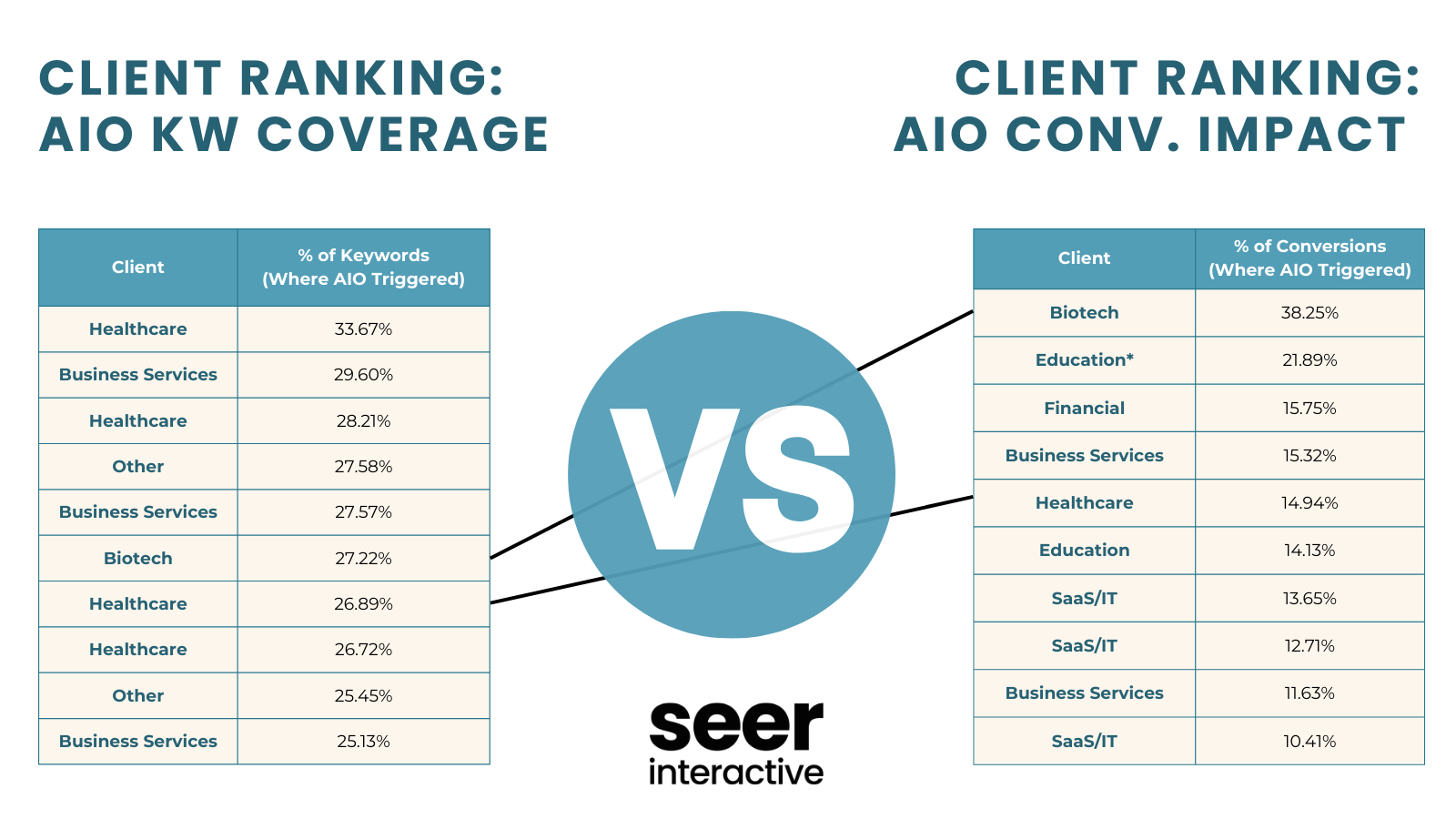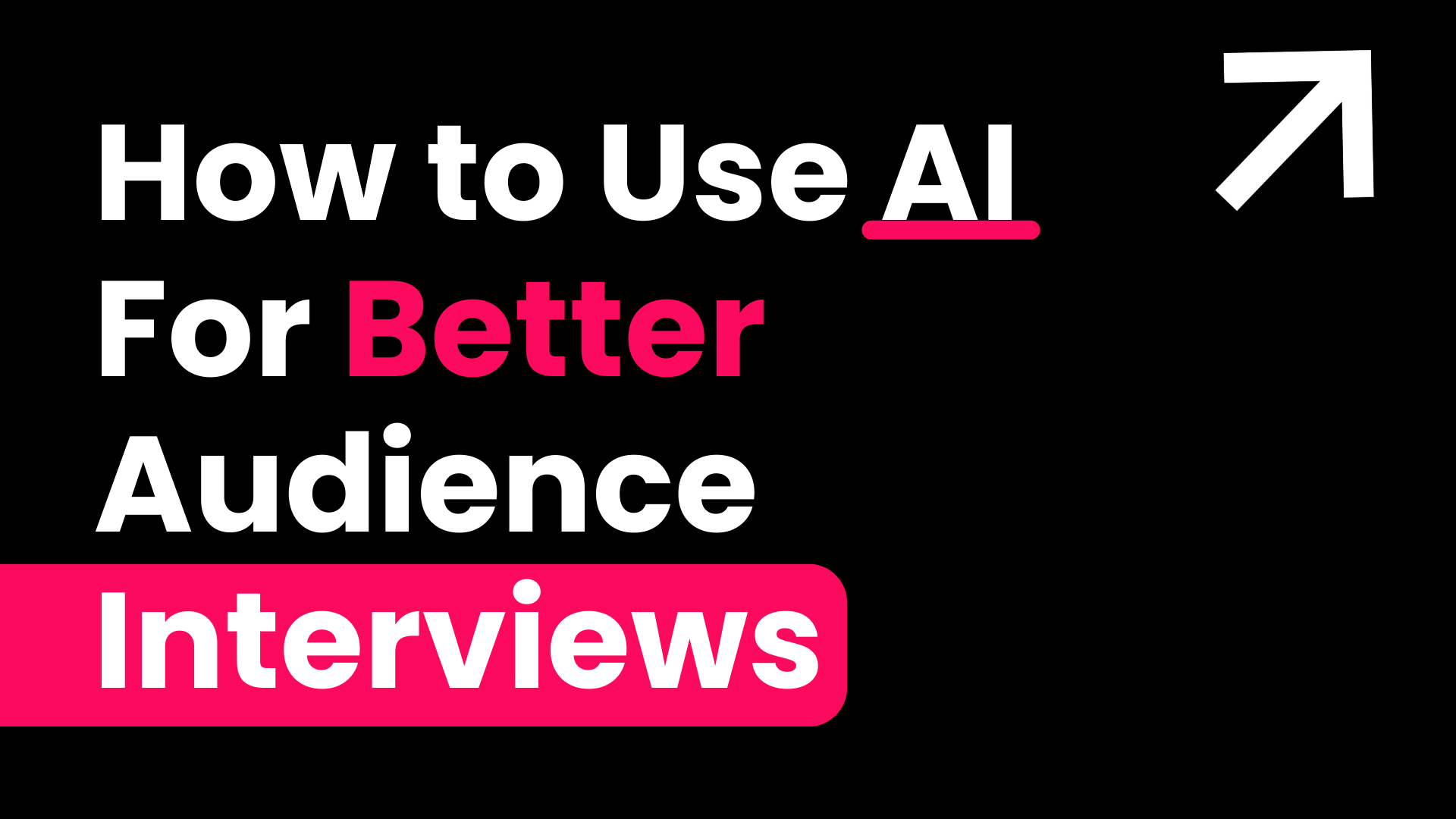For years, digital marketers have served one master: Google (OK, and other search engines). Search engines zigged and we zagged to play by the rules they’ve set. Keywords on the page matter most for rankings? Alright, let’s get to a keyword density of 6% and call it a day. Links are seen as “votes of confidence” that will make my site rank higher? Submit to a few more directories, intern!
Digital marketers have evolved over time, but mostly just to serve search engines.
As we’ve stayed laser-focused on Google and its algorithm, the folks who are actually doing the searching—people—haven’t been put first. At the end of the day, Google isn’t browsing your site, reading your content, and submitting lead forms—people are. It’s easier to monitor Google’s algorithm changes than understand something really tough: the motivations, experiences, and needs of actual people. That's where user research comes in.
We build an entire service to optimize for search engines (SEO) and forget about what we should be doing: optimizing people’s search experiences (PSX). And it’s not just about “optimizing,” we need to be discovering, understanding, and supporting them.
Turns out, the Golden Rule also applies to digital marketing: Treat others as you’d like to be treated (online).
Why does caring about people matter (other than it’s a nice thing to do)? Because it brings results: Our Client wanted to find new ways to understand and meet the needs of their customers after rebranding. Seer interviewed their BD team to get a sense of these needs and learned that pricing was a key part of the consideration phase of their customer’s journey, yet there was no existing pricing page due to the complexity of the structure. Seer worked with our Client to build a comprehensive pricing page that both spoke to customer needs and shared the Client's message in an impactful way that was true to their rebranding, which resulted in a revenue increase of $44K in the first 90 days.
So, What Is User Research & Why Is It Important?
At Seer, we define user research as the investigation to understand the behavior of our Client’s potential customers online, from what problems they’re looking to solve, how they search, what questions they need answered to what ultimately persuades them to convert using qualitative and quantitative tactics.
The importance of this user research isn’t to gather interesting insights to share with our Clients, but to better understand our potential customers, so we can improve our strategy. Because we focus on the audience’s online behavior, we seek to find actions that we can take to improve their purchase journey, from filling content gaps, better speaking to their needs in messaging, and improving the website experience based on their feedback.
Right now, you might be thinking, “Seer is a digital marketing agency, not a client branding agency. Why does user research matter to them?” It’s because we see our role not just to get potential customers to our Clients’ websites, but to support their path to conversion. By nature of being an agency, we work with a variety of clients, and for most, we’re not the target audience, so how can we assume that we know about their motivations and needs? Keyword research and reviewing People Also Ask (PAA) queries are useful, but converting potential customers is more than just targeting the right keywords—it’s about communicating the benefits of our Client’s product or service the right way, answering their questions, and creating trust. We take it as our responsibility to support the path to conversion, not just something left to our Clients.
The importance of user research always comes back to results. If we can better market to these potential customers and increase conversions, we’re being successful as an agency.
So, is Seer a full market research company now? No. Even though we’ve dedicated resources to hire Market Research grads and train the Seer team to conduct research, we see it as a way to get to positive Client outcomes faster. We’d rather ask people what they need and care about, then incorporate that into our strategy versus playing a guessing game based on a handful of keywords and hoping for the best. We conduct user research not to openly explore the audience’s demographic makeup, but to understand what gaps exist that our Clients should be filling and to make that happen.
SEOs Need to Put Themselves in Searchers’ Shoes
If you’re still not understanding why user research is important for digital marketing, here’s an example. If you are expecting a child and searching for information about which baby products are safest, are you thinking about the strength of the sites you’re reviewing as an SEO, or are you a soon-to-be first-time parent trying your hardest to create the best environment for your child? You’re not reading the H2s to see how well-optimized they are, but rather, if those sections of text will answer your most anxiety-inducing questions.
If a site is blindly following SEO “best practices,” then, at best, they’ve used Google’s “People Also Ask” (PAA) questions to determine what topics to include in the article. But, are they really answering your questions? Is their paragraph about safe baby product materials skimmable and optimized, yet it doesn't include opinions from pediatricians and other trusted experts? Was this written by an underpaid copywriter who isn’t wrong, but doesn’t answer any of your concerns with any depth?
What People Actually Think About Your Content Matters
And although Google has evolved to include behavior signals within its algorithm, we need to create content that isn’t just high-quality from a search perspective, but from a user perspective.
How do you find out what people need? While keywords give us huge hints into what topics people want to learn more about, it’s only a direction. It's not a roadmap of what you need to write about. So, what do we do? We talk to and observe the target audience.
We’ve been conducting our own user research on our Client’s audience for two years, racking up almost 3,000 hours of research—from leading interviews with target customers and internal Customer Service teams to analyzing search queries to conducting user search sessions. We’re not just content to let Keyword Planner guide what our Client’s content strategy should be. Instead, we’re learning about the experiences and needs of people and adjusting our strategy because of it.
Maybe it sounds like a waste of time, but it simply does not make sense to spend $1,200 to write a blog post on a topic based on keywords and assumptions only to publish it and find that it’s not performing well. Not only do you spend more time and money making updates based on “hunches” as to why that content isn’t working, but you lose trust in the eyes of people who looked to your site for answers and came away with nothing.
This isn’t just for SEO either. It doesn’t make sense to take guesses at different ad copy messages to test based on our assumptions, send it out into the world, and hope for the best. Sure, you can find a winner within the set, but what if what people really care about that would increase CTR 150% vs 15%. That’s the benefit of conducting user research.
It’s a smarter, more methodical move to take the same amount of money, invest in a survey or a handful of interviews to learn about what answers people truly need and use that information to create excellent content that gets it right the first time.
Putting an Audience-Centric Approach Into Action
For two years, Seer’s been living in an audience-centric mentality. At any point of working with a Client, we need to make sure we’re keeping the people who are searching for our Client’s information, products, or services in mind. And, it’s not just our Clients’ audience that’s benefiting from our shift, but our Clients, too. Here's one more example:
One of our Clients was looking for better ways to connect with their audience. They were already ranking well for their target terms but were looking for ways to better connect with their audience and improve their conversion rate.
One of our Clients in the SAAS space was looking for better ways to connect with their audience. They were already ranking well for their target terms but were seeking greater connection to improve their conversion rate.
Seer interviewed 12 of our Client’s existing customers to ask what information they needed on the landing pages and what type of experience they’d prefer. From those interviews, we identified common themes and overhauled a test group of landing pages. After conducting research to optimize people’s search experience and serve them with the best version of content to meet their needs, there was a 31% average increase to the conversion rates on the test pages. The existing content wasn’t terrible by any means—we just found that by talking to people, we better understood how to tailor the content they were looking for.
To help other digital marketers with this, we’re kicking off a series on how to understand your audience online, exploring how we conduct user research and how it’s helped our Clients. It’s going to cover how to:
- Uncover the underlying motivations of our target customer and the problems they’re trying to solve
- Observe how our target audience describes their needs when searching online
- Understand the online content needs of our target customers, so we can fill the gaps
- Analyze how our target audience is engaging with SERPs, as well as the Client’s and competitors’ websites, to observe their actual online behavior vs rely on their recollection
At Seer, we’re thinking beyond SEO to focus on PSX, people’s search experiences. We’re focusing on how to make our Client’s website experience better for the person who will be browsing and reading it, not search engines that determine ranking. That doesn’t mean we don’t consider ranking important anymore … we still do. But, we believe that by focusing on people, we will be rewarded by the folks doing the searching, not just search engines themselves.
💡 Keep Reading: How to Write a Marketing Research Objective



